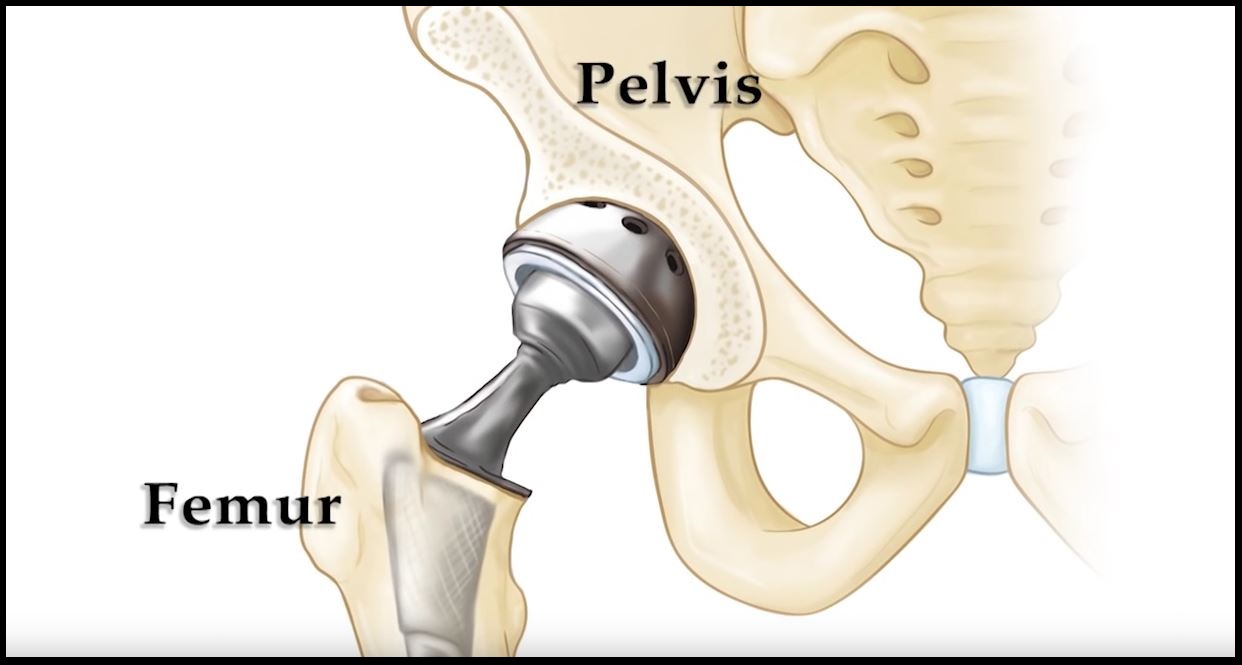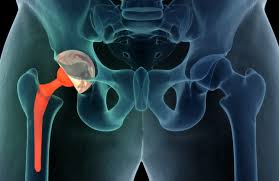Total Hip Replacement UL
Singapore
-
Our Price USD 21620
-
Hospital Price USD 22758
-
You Save : USD 1138
Booking Amount: USD 2162. Pay Remaining 90% at the hospital.
Book NowAdditional Credit
Among the important extras we offer as part of the Additional Credit are the following:
-
Site Tourism For The Patient & Attendant
-
Airport Pick & Drop Service
-
Ambulance service at airport
-
Priority appointments with The Doctor
-
Cancel Easily Anytime with Full Refund
-
Room Upgradation
-
Free Online Doctor Consultation Valued at USD 20
-
Free hotel Stay for 5 to 7 days Accordingly
-
Welcome Kit at Arrival
-
Interpreter
-
Medical Visa Assistance
What is Included?
- Doctor consultation charges
- Lab tests and diagnostic charges
- Room charges inside hospital during the procedure
- Surgeon Fee
- Cost of implant
- Nursing charges
- Hospital surgery suite charges
- Anesthesia charges
- Routine medicines and routine consumables (bandages, dressings etc.)
- Food and Beverages inside hospital stay for patient and one attendant.
What is not Included?
- Extra Radiology Investigations
- Healthcare Professionals Charges of other consultations.
- Other Requested Services such as Laundry etc.
- Additional Pharmaceutical Products and Medicines After Discharge from Hospital.
- Management of Conditions Unrelated to Procedures or Pre-Existing.
- The cost of any additional implants will be in addition to the package cost.
Package Description
Total Hip Replacement UL:
The diseased bone and cartilage are removed and replaced with prosthetic components in a total hip replacement (also known as total hip arthroplasty). The injured femoral head is removed, and a metal stem is inserted into the hollow middle of the femur to replace it.
Disease Overview:
Rheumatoid arthritis
Rheumatoid arthritis is a long-term inflammatory condition that affects more than your joints. The illness can harm a range of body systems in certain people, including the skin, eyes, lungs, heart, and blood vessels. It is an autoimmune disease in which your immune system assaults your own body's tissues.
Rheumatoid arthritis, unlike osteoarthritis, affects the lining of your joints, creating a painful swelling that can eventually lead to bone degradation and joint deformity.
Rheumatoid arthritis causes inflammation, which can cause harm to other regions of the body. Despite the fact that new types of drugs have greatly improved treatment choices, severe rheumatoid arthritis can still cause physical limitations.
Disease Signs and Symptoms:
The following are some of the signs and symptoms of rheumatoid arthritis:
- Joints that are painful, heated, and swollen
- Morning stiffness and inactivity are the most common causes of joint stiffness.
- Fever, fatigue, and a lack of appetite
- Smaller joints, such as the joints that connect your fingers to your hands and your toes to your feet, are often the first to be affected by early rheumatoid arthritis.
Wrists, knees, ankles, elbows, hips, and shoulders are frequently affected as the condition advances. Symptoms appear in the same joints on both sides of your body in the majority of instances.
About 40% of patients with rheumatoid arthritis also have indications and symptoms that aren't related to their joints. The following are some of the areas that might be affected:
- Skin\sEyes\sLungs
- Heart\sKidneys
- glands of the salivary
- Tissue of the nerves
- Marrow from the bones
- arteries and veins
The intensity of rheumatoid arthritis symptoms might vary, and they can come and go. Flares, or times of heightened disease activity, alternate with remissions, or periods when the swelling and discomfort lessen or cease. Rheumatoid arthritis causes joints to distort and move out of place over time.
Disease Causes:
Rheumatoid arthritis is an autoimmune illness that affects the joints. In a normal state, your immune system aids in the protection of your body against infection and disease. Your immune system assaults healthy tissue in your joints when you have rheumatoid arthritis. It can also affect your heart, lungs, nerves, eyes, and skin, among other things.
Doctors aren't sure what triggers this process, although it appears to have a hereditary component. While your genes do not cause rheumatoid arthritis, they might make you more susceptible to environmental conditions that can start the illness, such as infection with certain viruses and bacteria.
Factors that are at risk
Rheumatoid arthritis can be caused by a number of factors, including:
- It's all about you. Rheumatoid arthritis is more common in women than in men.
- Age. Rheumatoid arthritis can strike at any age, although it most typically strikes people in their forties and fifties.
- History of the family. If someone in your family has rheumatoid arthritis, you may be at a higher risk of developing it.
- Smoking. If you smoke cigarettes, you're more likely to develop rheumatoid arthritis, especially if you have a genetic predisposition to the disease. Smoking also appears to be linked to a worsening of illness severity.
- A lot of weight. Obese people tend to have a slightly greater chance of acquiring rheumatoid arthritis.
Disease Diagnosis:
Because the early signs and symptoms of rheumatoid arthritis are similar to those of many other diseases, it can be difficult to identify in its early stages. The diagnosis cannot be confirmed by a single blood test or physical finding.
Your doctor will examine your joints for swelling, redness, and warmth during the physical exam. He or she may also assess your muscle strength and reflexes.
Tests on the blood
An high erythrocyte sedimentation rate (ESR, also known as sed rate) or C-reactive protein (CRP) level in people with rheumatoid arthritis may suggest the existence of an inflammatory process in the body. Rheumatoid factor and anti-cyclic citrullinated peptide (anti-CCP) antibodies are two other popular blood tests.
Tests of imaging
X-rays may be recommended by your doctor to monitor the course of rheumatoid arthritis in your joints over time. Your doctor can use MRI and ultrasound tests to assess the degree of the disease in your body.
Disease Treatment:
Rheumatoid arthritis has no known cure. However, clinical trials show that early therapy with disease-modifying antirheumatic medicines (DMARDs) increases the likelihood of symptom remission (DMARDs).
Medications
Your doctor's drug recommendations will be based on the severity of your symptoms and the length of time you've had rheumatoid arthritis.
NSAIDs. NSAIDs (nonsteroidal anti-inflammatory medicines) can help to ease pain and inflammation.
Steroids. Corticosteroid medicines relieve inflammation and discomfort while also slowing the deterioration of joints. Bone weakening, weight gain, and diabetes are all possible side effects. Doctors frequently prescribe a corticosteroid to alleviate symptoms rapidly, with the intention of gradually weaning patients off the drug.
DMARDs that are often used. These medications can help to reduce the course of rheumatoid arthritis and prevent irreparable damage to the joints and other tissues. Methotrexate (Trexall, Otrexup, and others), leflunomide (Arava), hydroxychloroquine (Plaquenil), and sulfasalazine are all common DMARDs (Azulfidine). Liver damage and serious lung infections are possible side effects.
Therapy
Your doctor may recommend you to a physical or occupational therapist who may teach you exercises to maintain joint flexibility. The therapist may also recommend new ways to complete everyday duties that are less taxing on your joints. You could wish to take up an object with your forearms, for example.
Assistive gadgets can help you avoid putting unnecessary strain on your sore joints. A kitchen knife with a hand grip, for example, can assist safeguard your finger and wrist joints. Buttonhooks, for example, may make getting dressed a lot simpler. Catalogs and medical supply stores are excellent sources of inspiration.
Surgery
If drugs do not prevent or reduce joint deterioration, you and your doctor may decide to have surgery to restore the damaged joints. Surgery may be able to help you regain your capacity to move your joint. It can also help with pain and function.
One or more of the following techniques may be used in rheumatoid arthritis surgery:
- Synovectomy. The inflammatory lining of the joint (synovium) can be removed during surgery to help relieve pain and enhance joint flexibility.
- Tendon resurfacing. Tendons around your joint may loosen or rupture as a result of inflammation and joint injury. The tendons around your joint may be repaired by your surgeon.
- Fusion of the joints. When a joint replacement isn't an option, surgically fusing a joint may be indicated to stabilise or straighten a joint and provide pain relief.
- Replacement of the whole joint. Your surgeon will remove the damaged portions of your joint and replace them with a metal and plastic prosthesis during joint replacement surgery.
- Bleeding, infection, and discomfort are all risks associated with surgery. Discuss the advantages and disadvantages.
Information related to Treatment
Package Details
Days in Hospital
5 Days
Days in Hotel
*
16 Days
Room Type
Private
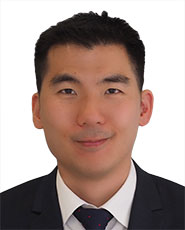
Treating Doctor
Adjunct Assistant Professor Chan Wai Mon Lester
Orthopaedic Surgeon,Orthopaedic Surgeon- Minimally invasive surgery, Joint replacement (TKR/THR), Total Hip Replacement, Total Hip Replacement, Acetabular fixation, Anthroscopic ACL reconstruction, Revision Joint Replacement (Hip & Knee)
Tan Tock Seng Hospital, Singapore Singapore, Singapore
16 Years of Experience
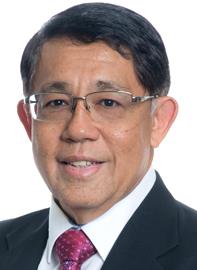
Treating Doctor
Dr Chew Tec Hock Jeffrey
Orthopaedic Surgeon,Orthopaedic Surgeon- Knee Replacement, Hip Replacement, Sports Injuries Surgery, Arthrisis management
Parkway East Hospital, Singapore Singapore, Singapore
Years of Experience
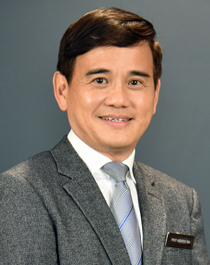
Treating Doctor
Prof Andrew Tan Hwee Chye
Orthopaedic Surgeon,Orthopaedic Surgeon- Shoulder Replacement, Knee Surgery, Sports Injuries Surgery, Shoulder Replacement
Sengkang Community Hospital, Singapore Singapore, Singapore
Years of Experience

Treating Doctor
Dr Bell David Paul
Orthopaedic Surgeon,Orthopaedic Surgeon- Trauma care, Reconstructive Surgeon, Deformity correction, Anterior Segment Surgery, Total Hip Replacement, Knee replacement surgeon, Joint replacement, Total Hip Replacement, Knee Arthroscopy, Fractures of Acetabulum/Pelvis/Femur/ Tibia/Humerus, Computer navigated TKR
Mount Elizabeth Hospital, Singapore Singapore, Singapore
22 Years of Experience
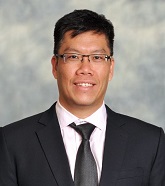
Treating Doctor
Dr Dave Lee
Orthopaedic Surgeon,Orthopaedic Surgeon- Shoulder Surgery, Orthopedic Shoulder & Elbow Surgery
National University Hospital, Singapore Singapore, Singapore
Years of Experience

Treating Doctor
Dr Lim Yeow Wai
Orthopaedic Surgeon,Orthopaedic Surgeon- Hand surgery, Hand surgery, Shoulder & Elbow Surgery, Sports Surgery, Arthroscopic Surgery, Column traumatology
Raffles Hospital, Singapore Singapore, Singapore
Years of Experience
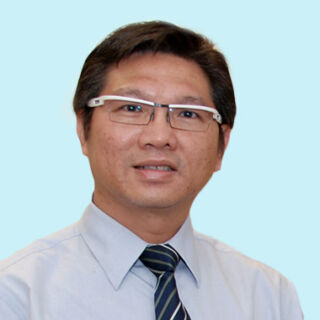
Treating Doctor
Dr David Wong
Orthopaedic Surgeon,Orthopaedic Surgeon- Kyphoplasty, Vertebroplasty, Disc replacement (Artifical Disc Placements), Cervical Disc Replacement, Lumbar Disc Surgery, Spinal Fusion Surgery, Spinal Deformity correction, Back pain, Spinal Deformity correction, Percutaneous Discectomies, Vertebroplasty
Raffles Hospital, Singapore Singapore, Singapore
Years of Experience
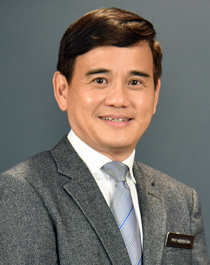
Treating Doctor
Prof Andrew Tan Hwee Chye
Orthopaedic Surgeon,Orthopaedic Surgeon- Shoulder & Elbow Surgery, Knee Surgery, Sports Injuries Surgery
Singapore General Hospital, Singapore Singapore, Singapore
Years of Experience
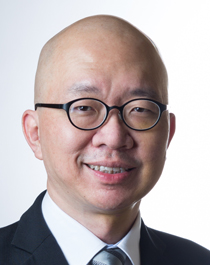
Treating Doctor
Adj Assoc Prof James Loh Sir Young
Orthopaedic Surgeon,Orthopaedic Surgeon- Total Knee Replacement, Total Hip Replacement, Cruciate Ligament Recosntruction, Total Hip Replacement, Knee Arthroscopy, Hip Arthroscopy, Knee Osteotomy
Changi General Hospital, Singapore Singapore, Singapore
Years of Experience

Treating Doctor
Dr Chan Beng Kuen
Orthopaedic Surgeon,Orthopaedic Surgeon- Resurfacing shoulder Arthroplasty (Copeland), Rotator Cuff Surgery, Decompression, Frozen shoulder
Gleneagles Hospital, Singapore Singapore, Singapore
Years of Experience
Similar Packages
Frequently Asked Questions
There are many prestigious hospitals in Singapore that offer Total Hip Replacement U/L. Some of the most renowned hospitals in Singapore for Total Hip Replacement U/L are as follows: 1-Parkway East Hospital, Singapore 2-Mount Elizabeth Hospital, Singapore 3-National University Hospital, Singapore 4-Raffles Hospital, Singapore 5-Singapore General Hospital, Singapore
Singapore has been a popular destination for Total Hip Replacement U/L procedures because of its state-of-the-art medical facilities and excellent success rate. There are numerous elements that make Total Hip Replacement U/L the best option when it comes to Singapore. This comprises: -Treatment alternatives that are affordable -knowledgeable and qualified professionals -Hospitals with accreditation -contemporary medical technology -Transparency and data privacy
Recovery times for various operations vary depending on the patient's condition and the intricacy of the therapy. To shorten the recovery period, the patient should, among other things, make sure to attend all rehabilitation sessions and adhere to postoperative care guidelines. Patients must make follow-up appointments after surgery in order to ensure appropriate healing and expedite the healing process.
In Singapore, a total hip replacement (U/L) typically costs roughly $21,500 USD. Total Hip Replacement U/L is performed in numerous multispecialty institutions around Singapore.

